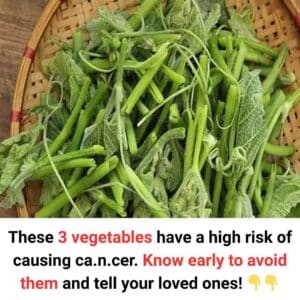You don’t expect your husband of twenty-five years to betray you in the quiet ways. Not with scandals or hotel receipts, but with small, steady cuts that turn trust to rust. For me, it started with the fridge.
Cooking was how I loved my family out loud. Our kids, Ellie and Jonah, grew up on casseroles that steamed in winter, summer pastas tossed with basil from the patio, soups that tasted better on day two because I planned them that way. Even after twelve-hour hospital shifts, I’d stack the shelves with glass containers like a neat little chorus line: lasagna, stew, roasted vegetables, brown rice, a lemon pie “just because.”
Then the food began to disappear.
Whole trays gone in a day. Spoons left sticky in the sink. Containers open on the counter like abandoned stage sets. “Randy,” I asked, bone-tired one night, “where’s everything going?”
He didn’t look up from his phone. “I was really hungry.”
“Hungry enough to eat a lasagna, two soups, and a casserole between breakfast and dinner?”
He chuckled. “What can I say? I’m a growing boy.”
It was meant to be a joke. It landed like a dismissal.
I let it slide. Then it happened again. And again. Every conversation ended the same way—shrug, smirk, “You love cooking; it’s your thing.” As if my time, my planning, the aching feet and the early alarms were invisible. As if love were an endless pantry that refilled itself.
“Set up a camera,” my colleague Sarah said over lunch, half-teasing, half-serious. I laughed it off. Who spies on their own kitchen?
One night a headache sent me home early. I parked, grateful for quiet, and opened the front door to music so loud it rattled the glass. The kitchen lights were on. And there, with her back to me, was May—Randy’s sister—methodically ladling soup into plastic containers, sliding them into a hideous pink tote bag. My meals. The ones that should have been our week’s worth of dinners.
I pulled out my phone and hit record. The flash caught her off guard. She spun, nearly sloshing a full quart onto the floor. “Doris! You’re back early.”
“What,” I asked, ice in my throat, “are you doing?”
“Just taking leftovers.” Her smile was shaky. “Randy said it was fine. Tommy’s five, it’s been hard to cook—”
“Stop.” I pointed to the bag. “Put it back. All of it.”
“Doris, we’re family,” she said, small and injured. “You always make too much anyway.”
“So you’ve been coming here when I’m at work? Regularly?” My voice sounded strange in my own ears.
“It’s not like that,” she stammered. “Randy gave me a key. He said you wouldn’t mind.”
The containers clacked in her hands as she stuffed them back. She fled with an apology that evaporated in the doorway.
Randy wandered down a minute later, hair rumpled like he’d just woken from a very restful nap. “What’s going on?”
I held up my phone and pressed play. He watched May’s pink tote grow fat with my food and didn’t even flinch.
“Why?” I asked. “Why would you do this?”
“She needed help,” he said, eyes skittering away. “It’s just food, Doris. Why are you making such a big deal out of it?”
Just food. I thought of all those dawn preps and midnight dishes, of lists and budgets and the way a good meal softens a bad day. “Do you know what ‘just food’ costs me?” I said quietly. “Hours. Energy. Love.”
“For God’s sake,” he snapped, “you’re acting like I committed a crime.”
“You didn’t ask me,” I said. “You decided for me. You let me think I was forgetful or careless or not cooking enough. You made me doubt myself.”
“You’re overreacting,” he said. “She’s my sister. What was I supposed to do—tell her no?”
“Yes,” I said. “Exactly that.”
Silence spread through the room like smoke.
“From now on,” I said, “if you touch anything I cook without asking me, I’ll buy a locking fridge. And if you want to talk about forgiveness, you can start by cooking for me every night for a year.”
He scoffed. “Be serious.”
“I am.”
For two days he performed competence. Takeout decanted onto plates. A sprig of parsley thrown like confetti. “I’m trying,” he said, as if plating could pass for care. “Isn’t that worth something?”
“Trying would have been respecting me in the first place,” I said. “It would have been telling your sister no and telling me the truth.”
On day three, the truth bit down. I wasn’t a partner in my own house. I was a system to be exploited: cook, wash, stock, repeat. He had turned my love language into free catering.
When I told Ellie and Jonah I was leaving, they both reached for the simplest story first.
“Mom,” Jonah said, “you’re getting divorced over food?”
“It’s not just food,” I said. “It’s what the food stood for.”
Ellie’s sigh came through the speaker. “You’ve been together twenty-five years. Doesn’t that count for anything? Dad’s… clueless sometimes.”
“Clueless is forgetting to take out the trash,” I said. “Clueless is not a months-long lie.”
They were quiet then, for a long time. Finally Ellie said, “You used to make mac and cheese when I was sad. It made everything feel fixable. I guess… that wasn’t just dinner either.”
“No,” I said. “It wasn’t.”
A week later, I packed my bags. Randy stood in the kitchen—the scene of the crime, the sacred place—hands open, bewildered. “You’re leaving over leftovers?”
“You threw this away,” I said, “one container at a time.” I paused. “And they weren’t leftovers. They were offerings.”
I rebuilt in inches. Therapy. Long walks without a timer. A ceramics class where I made a lopsided bowl the color of a robin’s egg and kept it, imperfect on purpose. I learned what hunger felt like when it wasn’t about food. I fed it with things that didn’t require a sink of suds.
Then May texted. Randy asked me to help with meals. I said yes. He’s impossible. I get it now. I’m sorry.
Of course he had. Of course she did. Of course she didn’t last.
Sometimes, when doubt taps at the door—when a memory ambushes me with a good Thanksgiving or a laugh at the sink—I open the video. There’s May, pink tote yawning. There’s me, standing in the doorway realizing I’ve been emptied out and repackaged as “extras.” There’s Randy upstairs, sleeping soundly through the theft of the one thing I asked him to honor.
People like to say it’s “just food.” But food is presence. It’s time you can’t get back. It’s love you can taste. When someone treats it like it’s nothing, what they’re really saying is that you’re nothing.
Here is what I know now: love requires consent. You don’t get to volunteer someone else’s labor and call it kindness. You don’t get to make them doubt their own eyes and call it marriage. You don’t get to take and take and call it family.
I kept the pink-tote video, not out of pettiness, but as a boundary stone. It reminds me of the exact moment I stopped asking to be valued and started valuing myself. It reminds me that I wasn’t “overreacting.” I was finally reacting—appropriately, firmly, fully—to a truth that had been quietly eating me alive.
I still cook. I still stock my fridge with neat little choruses of comfort. But now, when I spoon stew into a bowl, it’s because I want to feed someone who treats my offerings like the sacred, ordinary miracles they are—even if that someone is just me, at my own table, tasting peace.





